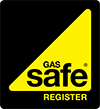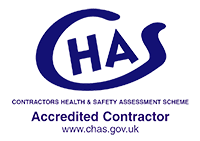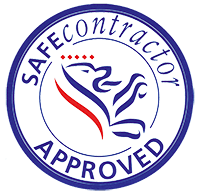14th – 20th September is Gas Safety Week 2020. This is an annual campaign that seeks to educate people about how to remain safe while using gas in every day appliances that heat our homes, provide hot water, and cook our food. We are starting with the basics; looking at how we obtain the gas that we use in our homes and how it gets there.
Around 22 million homes in the UK have gas boilers installed. It is, by far, the most common way to provide heating and hot water in the UK. But while so many of us have a gas boiler, do we really understand what gas is, where it comes from, and how we get it to our homes?
Here is an overview of how it works.
There are many types but the gas that we use in gas boilers is natural gas, which is predominantly methane. Natural gas is formed from decomposed organic matter in the earth, which is subjected to intense heat and pressure over millions of years. Around 44% of the UK’s gas comes from gas and oil fields in the North Sea. We extract it from the ground by drilling deep into the bed rock under the sea to reach underground reservoirs using remote oil platforms. Oil and gas are brought up to the platform where they are then separated. Any unwanted gas that cannot be stored or used is burnt off to reduce the risk of fire and explosion.
A grid of pipelines then takes the oil and gas to shore. Reserves from the North Sea are now in decline so we also import gas from Europe via four different pipelines: one between Norfolk in England and Zeebrugge in Belgium (this one is bi-directional, meaning that we can export gas as well as import it), one between Norfolk and Balgzand in The Netherlands, one between St Fergus in Scotland and a number of gas fields in Norway and one between East Yorkshire and Nyhamna in Norway. The latter is the longest underwater gas pipeline in the world at 1200km.
We also import liquified natural gas (LNG), shipped in from around the world.
There are other methods of extracting gas, including fracturing or ‘fracking’. However, this method, though used extensively in other countries such as the USA, is quite controversial and is not widely used in the UK. In fact, fracking was halted by the government in 2019 due to safety concerns.
Once the gas gets to shore, it is purified in a refinery to separate the methane from propane and butane. It is then stored in tanks, ready to be pumped into the country’s distribution network. Some is also stored in gas reserves. The UK has over 4bcm (billion cubic metres) of storage capacity. It is stored in depleted gas fields and in underground salt caverns.
Gas is then transported into homes all over the country via the grid network of underground pipelines, operated by National Grid. It comes into your home via a gas metre which also monitors how much gas you use so that your bills can be calculated.
Natural gas doesn’t actually smell of anything. The distinctive odour it has is added to enable us to detect a leak and, therefore, warn us as this can be extremely dangerous due to its flammability.
Gas is a fossil fuel so burning it releases carbon which is bad for the environment. Natural gas is also in decline so there is a lot of pressure to find alternative energy sources, including renewable energy such as solar power, wind and wave power, and energy from the air and ground. This will have repercussions for the way we heat our homes and we will be covering that on the blog this week as well.
Complete the form below and one of the Plumbcare.com team will get back to you as soon as possible.






A1 job cannot fault anything.